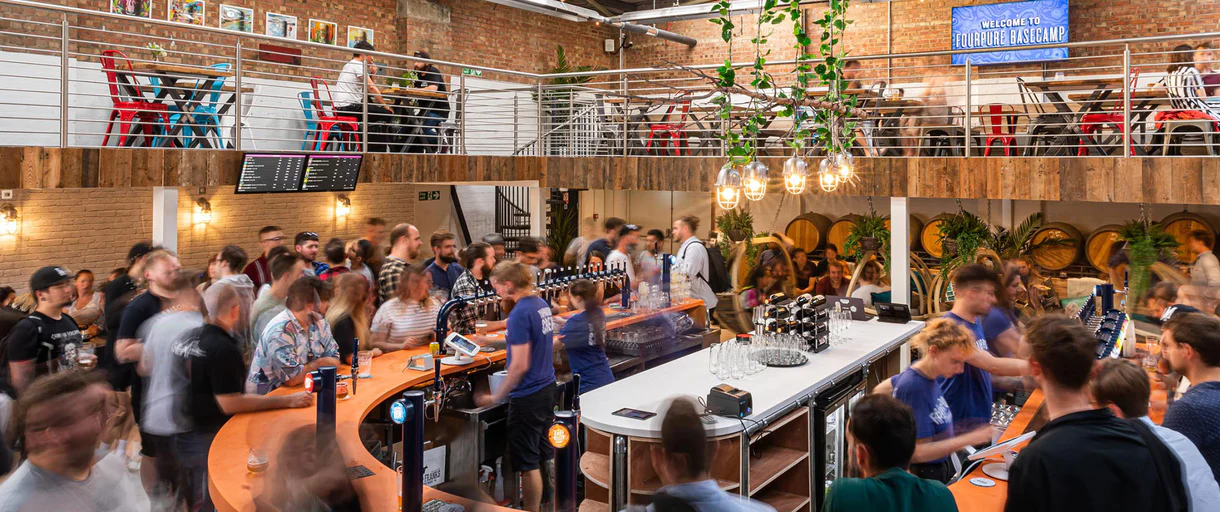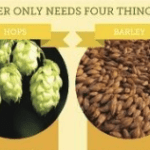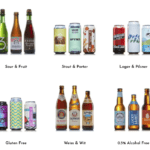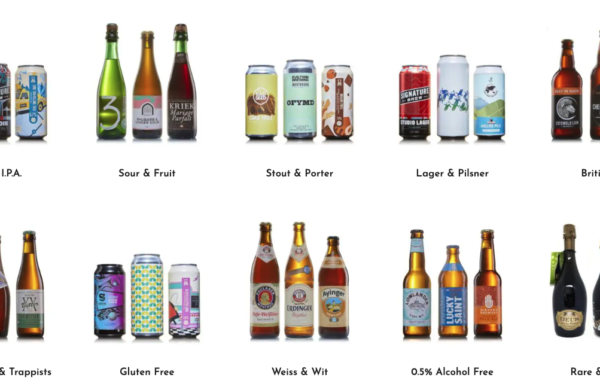Introduction to Beer Culture
To truly appreciate beer, it’s important to understand the fascinating world of beer culture. Beer culture encompasses the traditions, customs, and social aspects associated with this beloved beverage. In this section, we will delve into the essence of beer culture and explore its significance in society.
What is Beer Culture?
Beer culture refers to the collective attitudes, behaviors, and practices that surround the production, consumption, and appreciation of beer. It encompasses a wide range of elements, including the history of beer, brewing techniques, beer styles, drinking traditions, and the social aspects of beer gatherings.
Beer culture is not limited to any specific region or country. It is a global phenomenon that has evolved over centuries and continues to thrive today. Beer enthusiasts, brewers, and connoisseurs alike contribute to the rich tapestry of beer culture, sharing their knowledge, experiences, and passion for this ancient libation.
The Significance of Beer in Society
Beer holds a significant place in society, transcending mere refreshment. It has deep cultural, social, and historical roots that have shaped communities and traditions worldwide. Here are a few key aspects that highlight the significance of beer in society:
- Cultural Heritage: Beer is often deeply intertwined with the cultural heritage of a region or country. It reflects the traditions, values, and customs of the people, becoming an integral part of their identity. For example, countries like Germany, Belgium, and the Czech Republic have a strong beer culture that is deeply rooted in their history and celebrated through beer festivals and traditional brewing methods.
- Social Bonding: Beer has long been associated with socializing and building connections. It brings people together, fostering camaraderie and creating opportunities for shared experiences. Whether it’s gathering at a local pub, attending beer festivals, or hosting beer tastings, beer culture provides a platform for social interaction and community building.
- Culinary Pairings: Beer is a versatile beverage that complements a wide array of cuisines. The art of pairing beer with food has gained prominence, with beer sommeliers and enthusiasts exploring the intricate harmony between different beer styles and dishes. Beer culture has contributed to the elevation of culinary experiences, enhancing the enjoyment of both food and beer.
- Economic Impact: The beer industry plays a significant role in the global economy. It supports countless jobs, from farmers growing beer ingredients to brewers and hospitality professionals. Moreover, beer tourism, including visits to breweries and beer festivals, stimulates local economies by attracting visitors and boosting tourism.
Understanding beer culture allows us to appreciate the depth and diversity of this beverage. From the variety of beer brands and beer styles to the vibrant atmosphere of beer festivals, beer culture offers a world of exploration and enjoyment. So raise a glass and join the global community of beer lovers in celebrating this tasty tradition.
A Brief History of Beer
Beer, a beloved beverage enjoyed by many, has a rich and fascinating history. Let’s take a closer look at the origins of beer and its journey throughout the ages.
Origins of Beer
The origins of beer can be traced back thousands of years. It is believed that beer was first brewed in ancient Mesopotamia (modern-day Iraq) around 5,000 BCE. The Sumerians, who inhabited this region, were skilled in agriculture and began cultivating barley, one of the key ingredients in beer production.
The brewing process was initially discovered by accident when grains were left in water, leading to fermentation. This discovery marked the birth of beer, and it quickly became an integral part of daily life in Mesopotamia. Beer was not only consumed for its taste and thirst-quenching properties but also played a significant role in religious and social rituals.
Beer throughout the Ages
As civilizations developed and expanded, so did the brewing techniques and beer culture. Ancient Egyptians, for example, brewed beer for both nourishment and religious purposes. They even had a goddess of beer, named Tenenit.
During the Middle Ages, monasteries played a crucial role in preserving and advancing the art of brewing. Monks brewed beer within the monastery walls, focusing on quality and flavor. They experimented with different ingredients and brewing methods, contributing to the diversification of beer styles.
The invention of the hops in the 11th century in Europe revolutionized the beer industry. Hops not only added bitterness to balance the sweetness of the malt but also acted as a natural preservative, extending the shelf life of beer. This development allowed beer to be transported over long distances, leading to the growth of commercial brewing.
Over time, beer brewing became industrialized, with the rise of large-scale breweries during the Industrial Revolution. Advances in technology, such as the invention of refrigeration and pasteurization, further transformed the beer industry, making it more efficient and accessible to a wider audience.
Today, the world of beer is diverse and vibrant, with countless beer styles and brands to explore. From traditional brewing techniques to modern innovations, the evolution of beer has been shaped by beer culture and the ever-changing preferences of beer enthusiasts.
Understanding the historical roots of beer provides us with a deeper appreciation for this beloved beverage. It’s fascinating to see how beer has evolved throughout the centuries, leaving its mark on various cultures and societies. To learn more about the different types of beer and explore the wide-ranging beer festivals around the world, check out our articles on types of beer and beer festivals.
The Evolution of Beer Culture
As beer has been enjoyed throughout history, beer culture has evolved and transformed, reflecting the changing tastes and preferences of beer enthusiasts. This section explores the traditional brewing techniques that laid the foundation for beer culture and the modern craft beer movement that has revolutionized the industry.
Traditional Brewing Techniques
Traditional brewing techniques have deep roots in beer culture. These techniques have been passed down through generations, preserving the art and craftsmanship of brewing. While specific techniques vary across regions, some common elements can be found.
One of the fundamental aspects of traditional brewing is the use of natural ingredients like malted grains, hops, yeast, and water. These ingredients are carefully selected and combined to create unique flavors and aromas. To gain an in-depth understanding of the ingredients used in beer brewing, check out our article on beer ingredients.
Traditional brewing also involves fermentation and maturation processes that allow the flavors to develop and mellow over time. These processes often take place in wooden barrels, contributing additional complexity to the beer’s taste. The use of traditional brewing techniques showcases the heritage and cultural significance of beer in different parts of the world.
Modern Craft Beer Movement
In recent years, the craft beer movement has gained significant momentum, bringing a fresh perspective to beer culture. Craft breweries focus on producing small batches of beer with an emphasis on quality, innovation, and experimentation. This movement has revolutionized the beer industry, expanding the range of flavors and styles available to beer enthusiasts.
Craft brewers often draw inspiration from traditional brewing techniques while incorporating new and unconventional ingredients. This approach allows for the creation of unique and exciting flavors that push the boundaries of beer culture. To explore the diverse range of beer styles available, take a look at our article on beer styles.
The craft beer movement has not only diversified the beer landscape but also fostered a strong sense of community among beer enthusiasts. Craft beer festivals, where breweries showcase their creations, have become a popular gathering place for beer lovers. These festivals provide an opportunity to explore a wide variety of beers, connect with brewers, and appreciate the artistry behind craft beer. Learn more about the vibrant world of beer festivals in our article on beer festivals.
With the evolution of beer culture, traditional brewing techniques and the craft beer movement continue to coexist, catering to different tastes and preferences. Whether you appreciate the rich heritage of traditional brewing or enjoy the bold experimentation of craft beer, beer culture offers a diverse and exciting world to explore.
Beer Culture Around the World
As beer has become a beloved beverage across the globe, it’s fascinating to explore the diverse beer drinking traditions that have emerged in different cultures. Additionally, there are several famous beer festivals that draw enthusiasts from around the world. Let’s dive into the rich tapestry of beer culture around the globe.
Beer Drinking Traditions
Beer drinking traditions vary greatly from country to country, showcasing the unique customs and rituals associated with this ancient beverage. Here are a few notable beer drinking traditions from different parts of the world:
| Country | Beer Drinking Tradition |
|---|---|
| Germany | The German beer culture is characterized by the concept of “Gemütlichkeit,” which emphasizes a convivial atmosphere and the enjoyment of beer in traditional beer gardens or beer halls. The Reinheitsgebot, or German Beer Purity Law, has played a significant role in shaping the country’s brewing traditions. |
| Belgium | In Belgium, beer is often served in its own specific glassware, each designed to enhance the drinking experience of a particular beer style. Belgian beer culture also includes the age-old tradition of beer brewing by Trappist monks, resulting in unique and highly sought-after beers. |
| Japan | In Japan, beer is an integral part of the country’s drinking culture. It is often enjoyed alongside izakaya-style dining, where small plates of food are paired with different beer styles. The meticulous pouring technique, known as “tsuki-ji,” is also an important aspect of beer consumption in Japan. |
These are just a few examples of the diverse beer drinking traditions found around the world. Each culture brings its own flair and customs to the act of enjoying beer, making it an integral part of their social fabric.
Famous Beer Festivals
Beer festivals are celebrations of beer culture that draw enthusiasts from near and far to sample a wide array of brews while immersing themselves in a vibrant atmosphere. Here are a few famous beer festivals that have become iconic in the world of beer:
| Festival | Location | Description |
|---|---|---|
| Oktoberfest | Munich, Germany | Oktoberfest is the world’s largest beer festival, attracting millions of visitors each year. It originated in Munich and is famous for its large beer tents, traditional Bavarian music, and enthusiastic crowds enjoying a variety of German beers. |
| Great American Beer Festival | Denver, USA | The Great American Beer Festival is a premier beer event in the United States, showcasing the best of American craft beer. It features an extensive selection of beer styles, educational seminars, and a prestigious beer competition. |
| Belgian Beer Weekend | Brussels, Belgium | The Belgian Beer Weekend is an annual event held in Brussels, celebrating the rich brewing heritage of Belgium. It brings together numerous Belgian breweries, offering visitors the opportunity to taste a wide range of authentic Belgian beers. |
These beer festivals are just a glimpse into the vibrant and dynamic world of beer culture. They provide a platform for beer enthusiasts to come together, appreciate the craft of brewing, and indulge in the diverse flavors and traditions associated with beer.
As we explore the impact of beer culture on society, it’s evident that beer has not only become a social lubricant but also a prominent element in the culinary world. Let’s delve into the fascinating connections between beer and socializing, as well as beer’s role in the culinary realm.
The Impact of Beer Culture
As a beloved beverage enjoyed by people around the world, beer culture has a significant impact on various aspects of society. From socializing to the culinary world, beer plays a role that extends beyond its refreshing taste.
Beer and Socializing
Beer has been a social lubricant for centuries, bringing people together in a convivial atmosphere. It serves as a common denominator, fostering connections and facilitating bonding among individuals. Whether it’s a casual gathering at a local pub or a lively beer festival, beer culture creates opportunities for people to come together, share stories, and forge new friendships.
The act of raising a pint with friends or colleagues has become a social ritual in many cultures. It provides a sense of camaraderie and acts as a catalyst for conversations and celebrations. Beer culture encourages interaction and creates a relaxed setting where people can unwind and enjoy the company of others.
In addition to casual socializing, beer culture has also influenced the rise of beer clubs and tasting events. These gatherings allow enthusiasts to explore different beer styles and expand their knowledge while connecting with like-minded individuals. Beer tasting sessions often involve discussions about flavors, brewing techniques, and the history behind the beers being sampled.
Beer and the Culinary World
Beer culture has intertwined itself with the culinary world, offering a myriad of possibilities for pairing beer with food. Just as wine complements certain dishes, beer can enhance flavors and create harmonious combinations.
Beer’s diverse range of flavors, from malty and hoppy to fruity and spicy, provides a vast palette for pairing with various cuisines. Chefs and home cooks alike have embraced the art of beer and food pairing, creating new dimensions of taste and elevating dining experiences.
The carbonation and bitterness of beer can cleanse the palate and cut through the richness of certain dishes, making it an excellent companion for hearty meats, cheeses, and spicy foods. On the other hand, lighter beer styles, such as wheat beers or pilsners, can enhance the delicate flavors of seafood, salads, and lighter fare.
Beer culture has also led to the development of specialty beers brewed with specific ingredients or techniques to complement particular dishes. These beers are often crafted to enhance the flavors of a specific cuisine, creating a symphony of tastes when enjoyed together.
As beer continues to evolve and captivate the palates of enthusiasts, the impact of beer culture on socializing and the culinary world remains undeniable. Whether it’s a casual gathering or an elaborate dining experience, beer’s presence adds an extra layer of enjoyment and camaraderie.
Remember to explore the diverse world of beer, from different beer brands to types of beer, to fully appreciate the interplay between beer and socializing, as well as beer and food. Cheers to the rich tapestry of beer culture!




